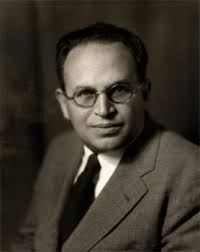Lazarsfeld, Paul

Bio: (1901-1976) Austrian-American sociologist. Paul Lazarsfeld earned a Ph.D. in mathematics from the University of Vienna. He later became interested in the application of mathematics to sociology, so, together with his wife, sociologist Marie Jahoda, he conducted a quantitative study of radio listeners in Austria. Lazarsfeld received a scholarship from the Rockefeller Foundation and left for the United States in 1933, where he remained for the rest of his life. In America, he taught at Columbia University and founded the Bureau of Applied Social Research. In America, he continued to study radio as a means of mass communication.
Lazarsfeld is best known for his research on voter behavior, which he presented in his books Personal Influence (1955), Voting (1966), and People's Choice (1968). In the book Personal Influence, Elihu Katz and Lazarsfeld present the results of research they conducted together. They concluded that different people have different levels of information on political issues and that voting behavior is greatly influenced by social contacts. The ability and willingness to accept the message sent by the media are influenced by many factors: personal education and ideological commitment, as well as the emotional strength, form, and language of the message itself. Even more than radio or the press, voting behavior is influenced by "opinion leaders", people who have a great influence on people close to them, because they, in their environment, are the ones who share the most information and opinions about politics. Lazarsfeld has significantly improved the qualitative research methodology by improving many techniques: surveys, focus groups, panel discussions, and contextual analysis. He also developed "latent structure analysis", a technique for using contingency tables in log-linear models.
Theoretical approaches
Mathematical SociologyMain works
Die Arbeitslosen von Marienthal (1932);
Radio and the Printed Page: An Introduction to the Study of Radio and Its Role in the Communication of Ideas (1940);
Personal Influence (1955);
Voting: A Study of Opinion Formation in a Presidential Campaign (1966);
The People's Choice (1968);
Qualitative Analysis: Historical and Critical Essays (1972).

